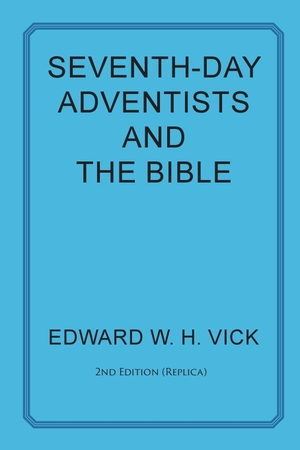Für statistische Zwecke und um bestmögliche Funktionalität zu bieten, speichert diese Website Cookies auf Ihrem Gerät. Das Speichern von Cookies kann in den Browser-Einstellungen deaktiviert werden. Wenn Sie die Website weiter nutzen, stimmen Sie der Verwendung von Cookies zu.
Cookie akzeptieren
Edward W. H. Vick
Seventh-Day Adventists and the Bible
- Energion Publications
- 2018
- Taschenbuch
- 74 Seiten
- ISBN 9781631995477
In debates about the authority of the Bible, people commonly argue that the Bible is inspired, even inerrant, and therefore that it has authority. Is this argument valid? Dr. Edward W. H. Vick argues that it is not, that authority does not derive from inspiration, and that terms like "inspiration" and "inerrancy" do not contribute to a belief in, or the authority of the Scriptures at all. Using the example of the Seventh-day Adventist Church and debates over the inspiration and authority of the Bible and then of Ellen G. White, he outlines and illustrates the pitfalls of arguing directly from an idea of inspiration to
Mehr
Weniger
zzgl. Versand
in Kürze